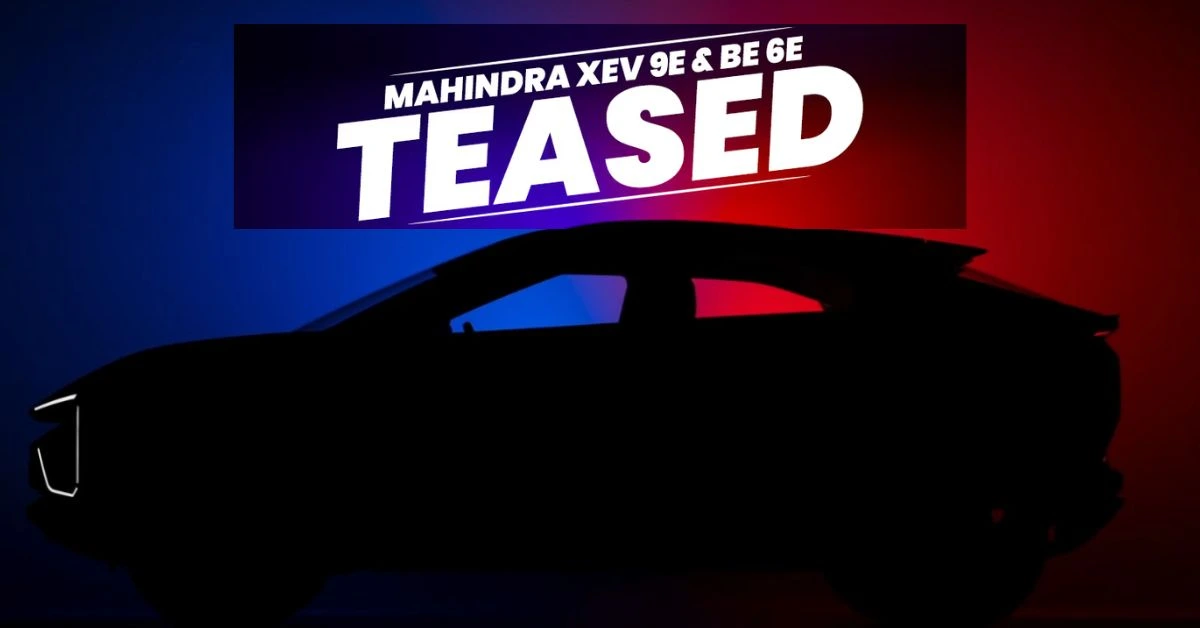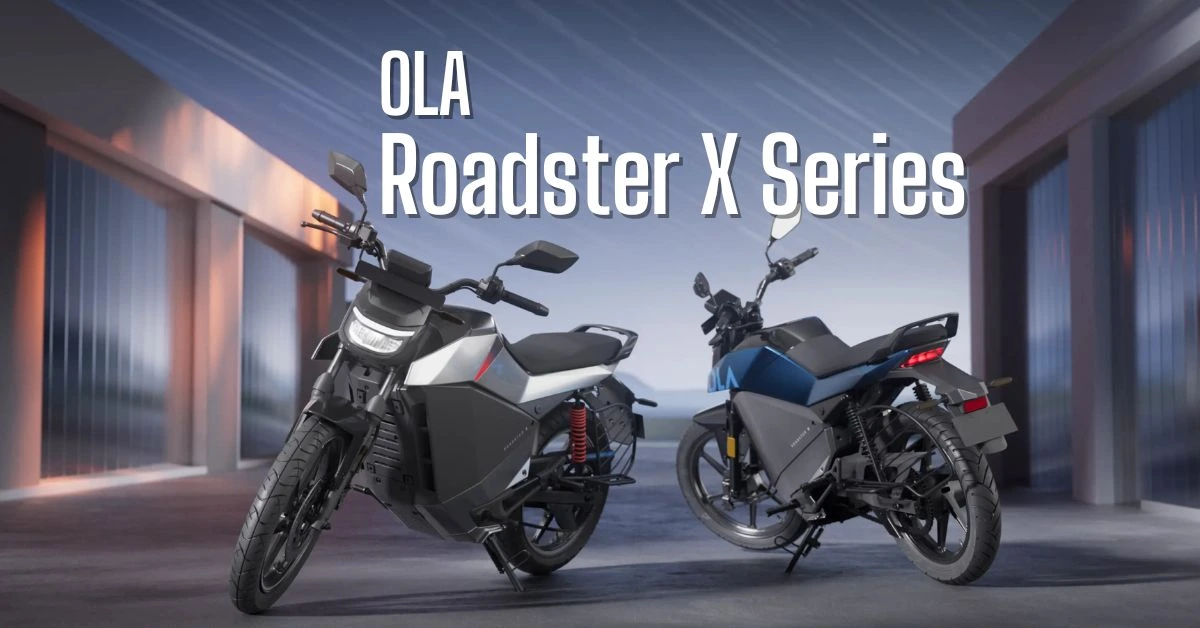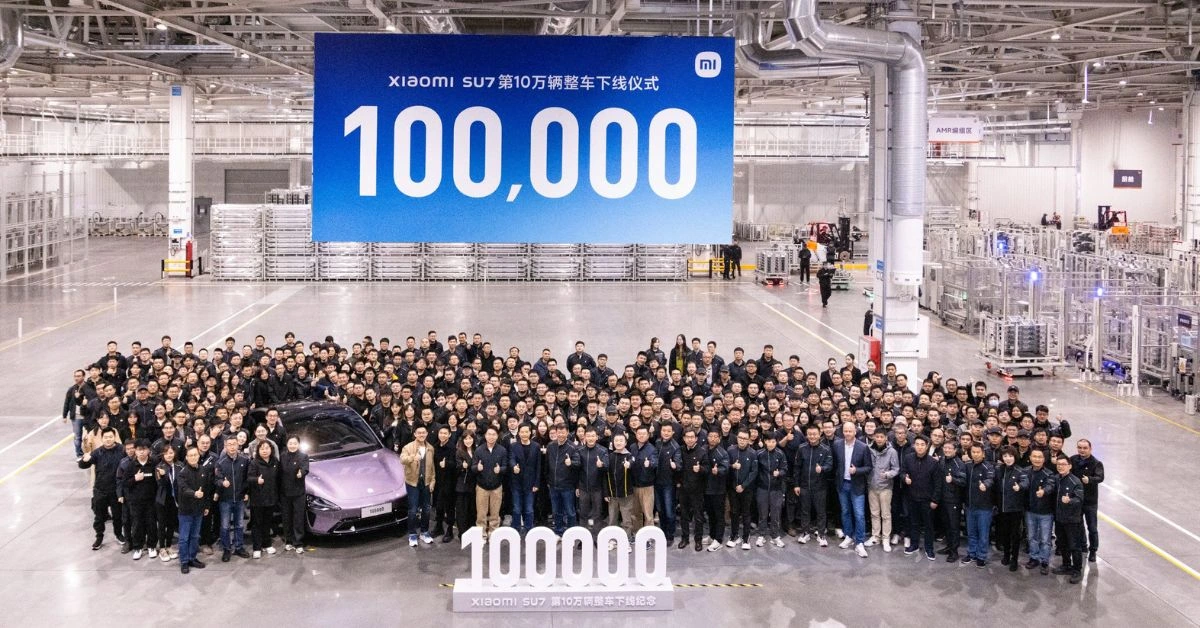Hyundai Creta EV 2025: Everything You Need to Know About India’s Most Anticipated Electric SUV
Hyundai is set to bring one of the most anticipated electric vehicles to India — the Hyundai Creta EV. With a market already buzzing with interest, this upcoming all-electric version of the popular Hyundai Creta SUV is expected to make a big impact. After the success of its previous electric models like the Kona Electric and Ioniq 5, Hyundai is now gearing up to introduce its first locally produced EV for the Indian market.
The Hyundai Creta EV is poised to rival some of the most popular electric SUVs in the country, including the Tata Curvv EV, MG Windsor EV, and the upcoming Maruti Suzuki E-Vitara. In this article, we will explore everything we know about the Creta EV so far — from its design and features to its expected performance and launch details.
Table of Contents
Hyundai Creta EV: Expected Launch Timeline
The Hyundai Creta EV is slated to launch in the Indian market in the first quarter of 2025. Hyundai has been spotted testing the vehicle on Indian roads, and spy shots have revealed several key details about the car’s design and features. The company is expected to start production by the end of 2024, with deliveries beginning shortly after its official launch.
Creta EV’s launch is expected to be a game-changer in the Indian EV market, offering an affordable electric SUV for those looking to make the switch from traditional internal combustion engine (ICE) vehicles.
Hyundai Creta EV: Design and Features
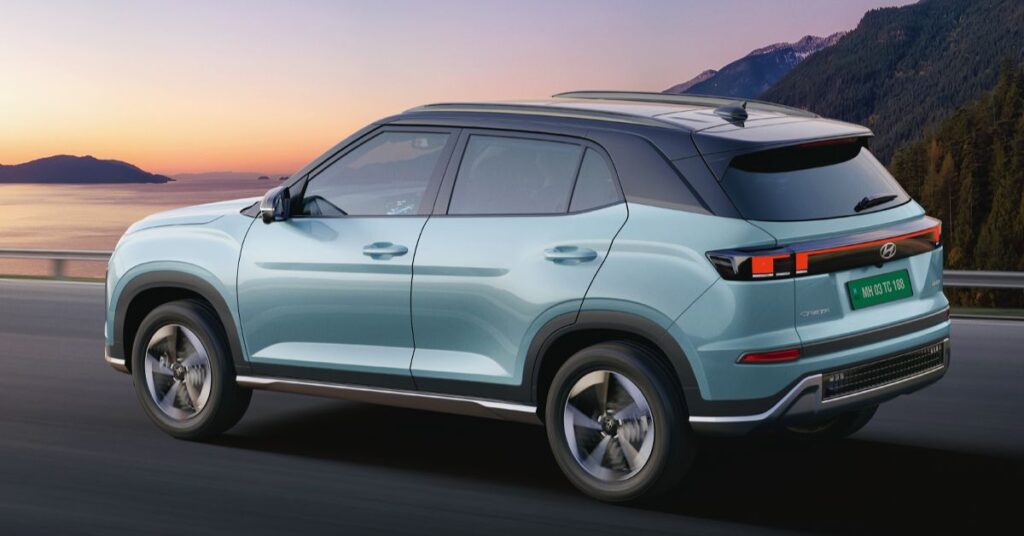
When it comes to design, the Creta EV will retain much of the appeal of the conventional Creta SUV. The electric version will maintain the iconic Creta silhouette but with some notable changes to reflect its electric nature.
Exterior Design: A Familiar Yet Fresh Look
- Closed-off Grille: Like most electric vehicles, the Creta EV will feature a closed-off grille, which helps improve aerodynamics and range efficiency.
- Unique Alloy Wheels: The EV version will feature distinct, dual-tone 17-inch alloy wheels with a machine-cut finish, adding a more futuristic look compared to the ICE model.
- LED Headlamps and DRLs: The Hyundai Creta EV will carry forward the dual-projector LED headlamps and the signature split DRLs from the standard Creta, but with subtle updates to keep the look fresh.
The design will still be familiar to anyone who has seen the standard Creta, but the changes will set the EV apart and emphasize its status as a next-generation vehicle.
Interior Design: High-Tech Meets Comfort
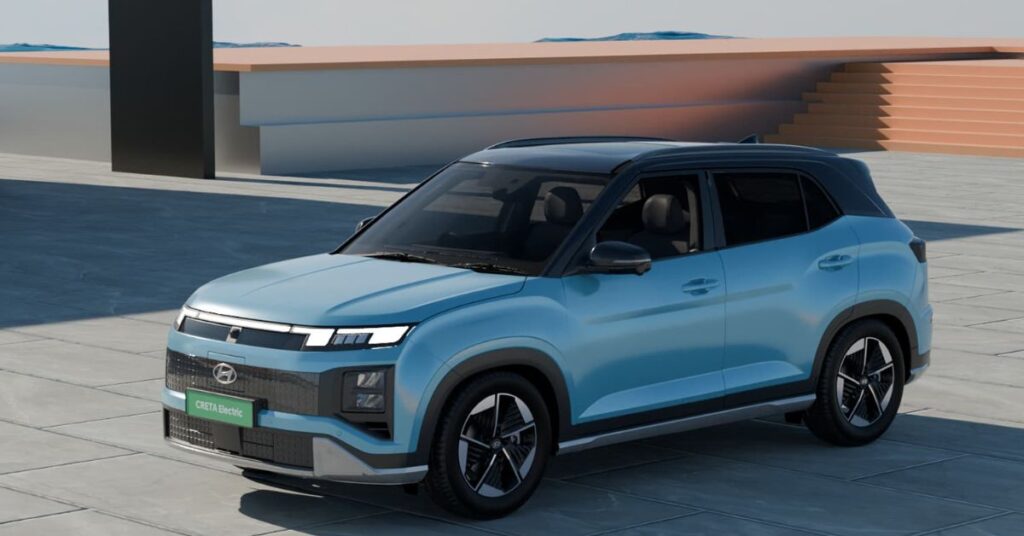
Inside, the Hyundai Creta EV will borrow heavily from the interior design of the standard ICE-powered Creta. Expect a modern, clean dashboard layout with some key differences to accommodate the electric powertrain.
- Twin-Screen Setup: The Creta EV will sport a 10.25-inch digital instrument cluster and a 10.25-inch touchscreen infotainment system. These screens will work together to deliver real-time data on everything from range to driving modes.
- Steering Wheel: The steering wheel in the Creta EV will be redesigned with a unique, three-spoke configuration and will feature controls for the drive mode selector, paddle shifters for regenerative braking, and an electric-themed design.
- Advanced Safety Features: As with other Hyundai models, the Creta EV will come equipped with Level 2 ADAS (Advanced Driver Assistance Systems), six airbags, ESC (Electronic Stability Control), and a 360-degree camera system, ensuring both safety and convenience for all passengers.
Other Features and Technology
Hyundai is not holding back when it comes to features. The Creta EV will come packed with technology, including:
- Level 2 ADAS (Advanced Driver Assistance System) for safety
- Six airbags as standard
- Ventilated seats for driver and front passenger
- 360-degree camera system for easier parking and maneuvering
- Wireless smartphone charging for convenience
- Panoramic sunroof for an open, airy feel inside the cabin
Hyundai Creta EV: Powertrain and Performance
The Creta EV is expected to come equipped with a 45 kWh battery, similar to the entry-level Kona Electric. This battery pack is expected to deliver an impressive range of 450 km (under ideal conditions), making it an excellent choice for daily commuting and long trips. Some reports suggest that the real-world range might be closer to 350-375 km, considering varying driving conditions.
Powering the Creta EV will be a 138 bhp electric motor that offers instant torque delivery, making the SUV feel quicker off the line than its ICE counterparts. The Creta EV will likely come with both single and dual-motor configurations, giving customers the option to choose based on their performance needs.
- Battery Capacity: 45 kWh
- Electric Motor Power: 138 bhp
- Driving Range: 450 km (certified), 350-375 km (real-world)
- Torque: 255 Nm
The Creta EV is expected to feature fast-charging capabilities, although it’s still unclear whether it will offer V2L (Vehicle-to-Load) or V2V (Vehicle-to-Vehicle) charging functions.
Hyundai Creta EV Rivals: What Makes the Hyundai Creta EV Stand Out?
One of the key differentiators for the Creta EV will be its ability to combine practicality with advanced tech features. The Creta EV will be a five-seater, offering generous space in both the front and rear rows, making it a great option for families. With a higher bumper height and wider rear seat space, it’s perfectly suited for Indian roads, which often face tough conditions. The SUV’s interior will also be designed to accommodate the larger battery pack, providing ample space without compromising on comfort.
| Model | Launch Date | Battery Capacity | Range | Price Range |
| Hyundai Creta EV | January 2025 | 45 kWh | 450 km | ₹20-25 Lakh |
| Tata Curvv EV | 2024 | 45-55 kWh | 400-500 km | ₹20-25 Lakh |
| MG Windsor EV | 2024 | 38 kWh | 331 km | ₹10-15 Lakh |
| Maruti Suzuki E-Vitara | 2025 | 50-60 kWh | 500-550 km | ₹20-25 Lakh |
Hyundai Creta EV: Price and Market Positioning
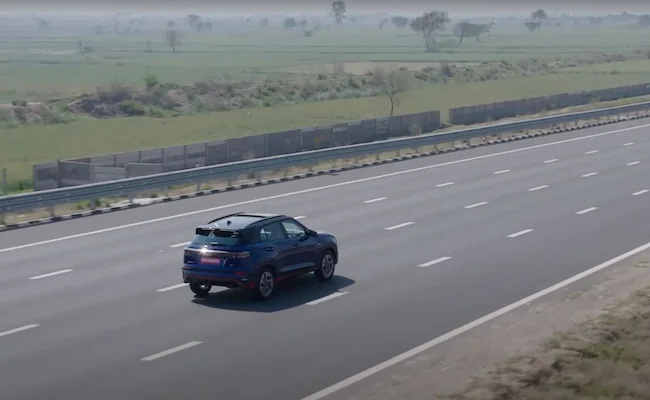
The Hyundai Creta EV is expected to be priced in the ₹20-25 lakh range, making it an attractive option for those looking for an affordable electric SUV. Hyundai is positioning the Creta EV as an entry-level to mid-range electric vehicle in the competitive compact SUV segment.
This pricing strategy is expected to help the Creta EV gain traction in India’s growing EV market, where demand for affordable and efficient electric vehicles is steadily rising.
Hyundai’s Ambitious Plans for India’s EV Market
In line with its ambitious EV plans for India, Hyundai is aiming to boost its annual output to 1 million units by 2030, with a strong emphasis on electric mobility. The company is investing heavily in its production facilities in India, with a new smart factory in Pune set to begin operations in the second half of 2025. The plant will have an annual capacity of over 200,000 units, contributing to the company’s goal of producing more electric vehicles locally.
Additionally, Hyundai plans to build 485 EV charging stations across India by 2030, ensuring that Creta EV owners will have easy access to charging infrastructure.
Hyundai’s CEO, Sung Hwan Cho, shared his vision for the company’s future in India:
“Our strategy in India revolves around leveraging local manufacturing capabilities and building electric vehicles that cater specifically to the unique needs of the Indian market. The Creta EV will play a key role in our journey towards sustainable mobility in India.”
Hyundai’s entry into the electric vehicle market with the Creta EV is a bold move to capture a significant share of the rapidly expanding EV market in India.
Conclusion
The Hyundai Creta EV is shaping up to be a strong contender in the growing Indian electric vehicle market. With a competitive price tag, excellent range, and a long list of features, it promises to be a solid option for those looking to switch to electric driving. As we await its official launch in 2025, it will be interesting to see how Hyundai positions this electric SUV against its rivals.
Hyundai’s move towards electric mobility marks a significant step in the company’s commitment to sustainability and innovation, offering Indian consumers an exciting new option in the electric vehicle segment. Keep an eye out for more updates as the Hyundai Creta EV nears its launch date!
FAQs:
What is the expected launch date of the Hyundai Creta EV?
The Hyundai Creta EV is expected to launch in India in early 2025, with production set to begin by the end of 2024.
What is the driving range of the Hyundai Creta EV?
The Hyundai Creta EV will offer a certified range of 450 km, with a real-world driving range likely around 350-375 km.
How much will the Hyundai Creta EV cost in India?
The Creta EV is expected to be priced between ₹20 lakh and ₹25 lakh in India, making it an affordable electric SUV option.
Who are the competitors of the Hyundai Creta EV?
The Creta EV will compete against models like the Tata Curvv EV, MG Windsor EV, Maruti Suzuki E-Vitara and the Mahindra BE 06.
What features will be available in the Hyundai Creta EV?
The Creta EV will offer features like a 10.25-inch twin-screen infotainment system, Level 2 ADAS, ventilated seats, a panoramic sunroof, and a 360-degree camera.
Will the Hyundai Creta EV be locally manufactured?
Yes, the Creta EV will be produced in India, specifically at Hyundai’s Pune plant.

